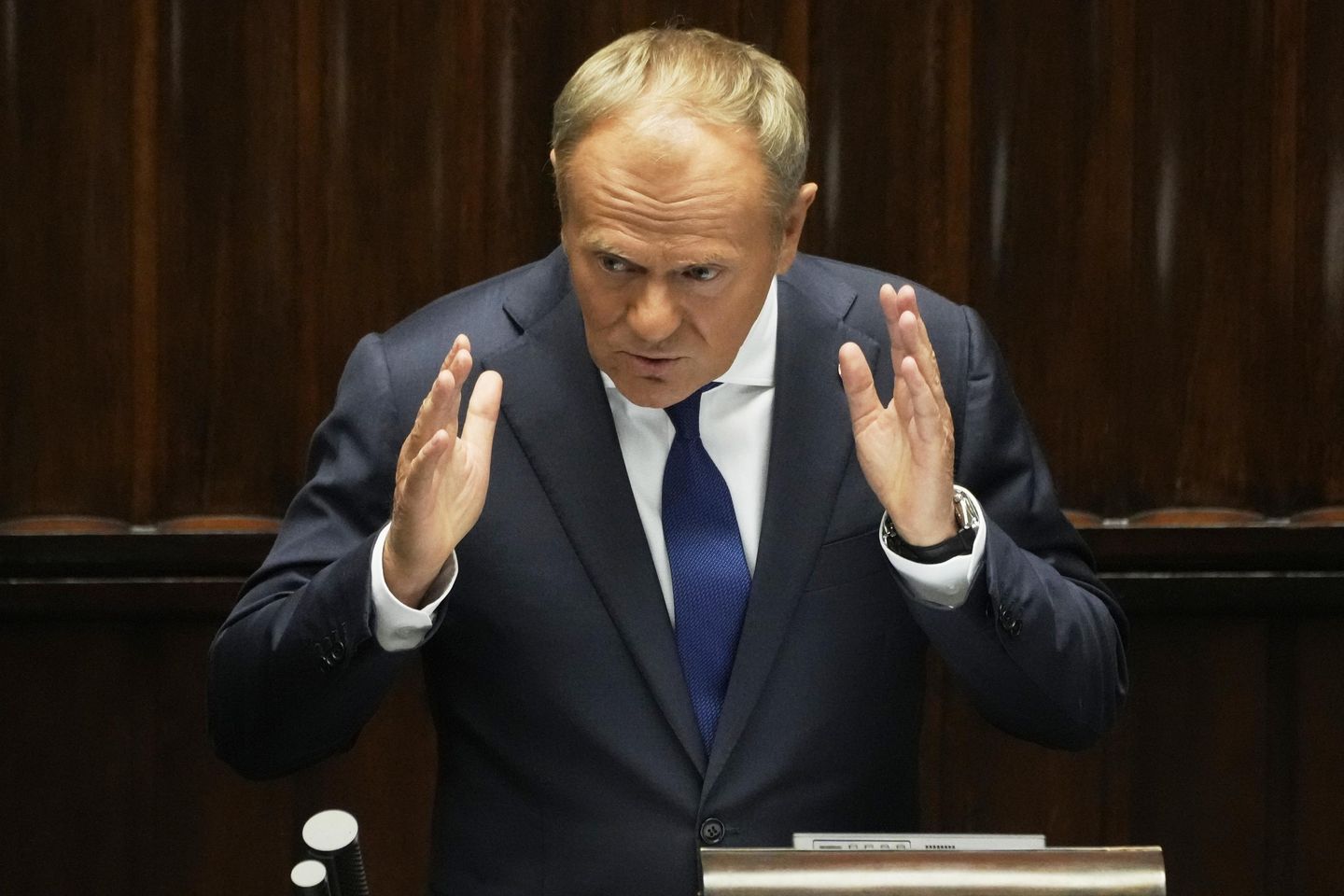
WARSAW, Poland — Prime Minister Donald Tusk defended his centrist, pro-European government before parliament on Wednesday, seeking to reassert control and rally his fractured coalition after suffering a bitter political defeat.
Tusk requested a vote of confidence in the wake of the June 1 loss of Warsaw Mayor Rafał Trzaskowski — his close ally — to nationalist historian Karol Nawrocki. Backed by U.S. President Donald Trump, Nawrocki is set to replace outgoing President Andrzej Duda, another conservative who repeatedly blocked Tusk’s reform efforts.
“I am asking for a vote of confidence with full conviction that we have a mandate to govern, to take full responsibility for what is happening in Poland,” Tusk said.
Most of the power in Poland’s parliamentary system rests with an elected parliament and a government chosen by the parliament. However, the president can veto legislation and represents the country abroad.
“Anyone who is ready to move forward with me, with the government, and above all with our voters, regardless of these momentary emotions, and build a better Poland, should vote today for a vote of confidence in our government,” Tusk said.
The vote, scheduled for Wednesday afternoon, is widely expected to go in Tusk’s favor. His four-party coalition holds a narrow but stable majority in the 460-seat Sejm, Poland’s lower house.
A loss would trigger the formation of a caretaker government and may open the door for an early parliamentary election. That could potentially returning power to the conservative Law and Justice party, in coalition with the far-right Confederation party, whose candidate placed third in the presidential race.
Tusk had long counted on a Trzaskowski victory to break the institutional deadlock created by Duda’s vetoes. Instead, he now faces an incoming president aligned with the nationalist opposition and openly hostile to his government’s legislative priorities.
“We cannot close our eyes to reality,” he said. “A president who was reluctant to accept the changes we proposed for Poland and our voters is being replaced by a president who is at least equally reluctant to those changes and proposals.”
But he also argued that Trzaskowski’s narrow defeat indicates that there is continued strong support for those who share his views.
The election result has rattled the already uneasy governing coalition, which spans from center-left to center-right and has struggled to deliver on key campaign pledges, including liberalizing Poland’s abortion law and legalizing same-sex civil unions. Tusk acknowledged the growing strains in Wednesday’s address.
Many are also blaming Tusk for contributing to Trzaskowski’s loss. Much of the criticism has come from within his coalition, as his partners examine whether they are better off sticking with him or risking a collapse of the coalition. Some are calling for a new prime minister to be selected.
There are questions about what Tusk can realistically achieve before the next parliamentary election, scheduled for late 2027, and whether the coalition will even survive that long amid a surge in popularity for the far right. Polish media and political analysts are debating whether this might be the 68-year-old Tusk’s political twilight.
“I know the taste of victory, I know the bitterness of defeat, but I don’t know the word surrender,” Tusk said.
As part of his fresh start, he announced plans for a government reconstruction in July that will include “new faces.” He said a government spokesman would be appointed in June – an acknowledgement that the coalition needs a way to present a unified message. So far Tusk has sought to communicate his policies to the public himself on social media and in news conferences.
Tusk served as Polish prime minister from 2007 to 2014 and then as president of the European Council from 2014 to 2019. He became Poland’s prime minister again in December 2023 in a country exhausted by the pandemic and inflation, and with political divisions deep and bitter.
In a sign of those divisions, half of the parliament hall was empty on Wednesday, with lawmakers from the right-wing Law and Justice party boycotting his speech. Tusk said their absence showed disrespect to the nation.








